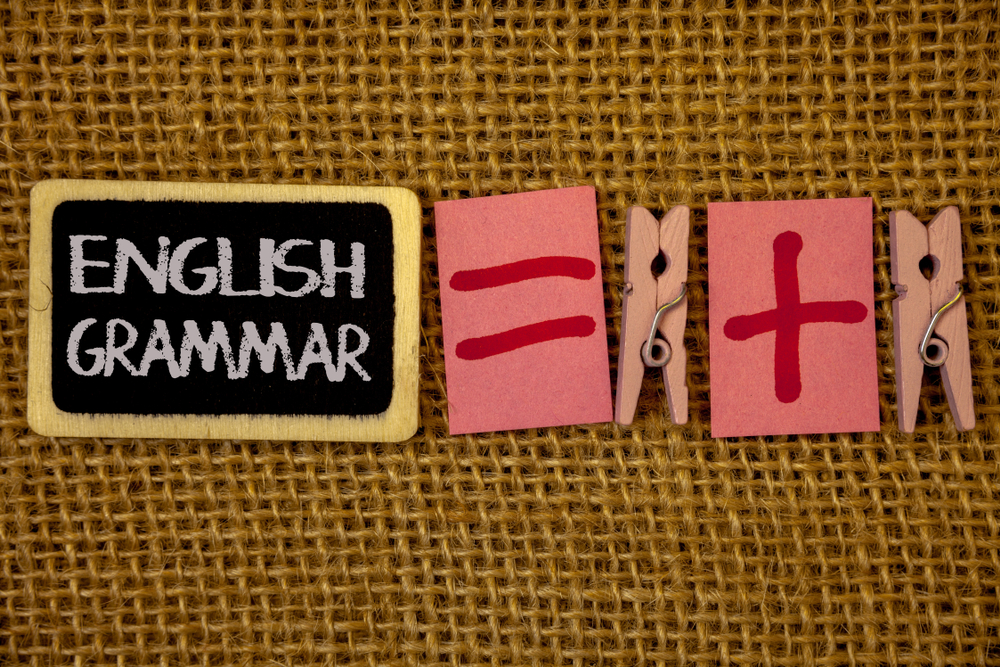Identifying story elements Worksheets for Ages 4-9
4 filtered results
-
From - To
Unlock young imaginations with our "Identifying Story Elements Worksheets for Ages 4-9". These expertly crafted worksheets are designed to help children recognize key story elements like characters, setting, plot, and more. Engaging activities and vibrant illustrations keep kids entertained while enhancing reading comprehension and critical thinking skills. Perfect for preschool to grade 3 students, our printable resources make learning fun and interactive. Equip your child with essential literacy foundations and watch them become confident storytellers. Download today from Kids Academy to support your child’s journey into the magical world of stories!
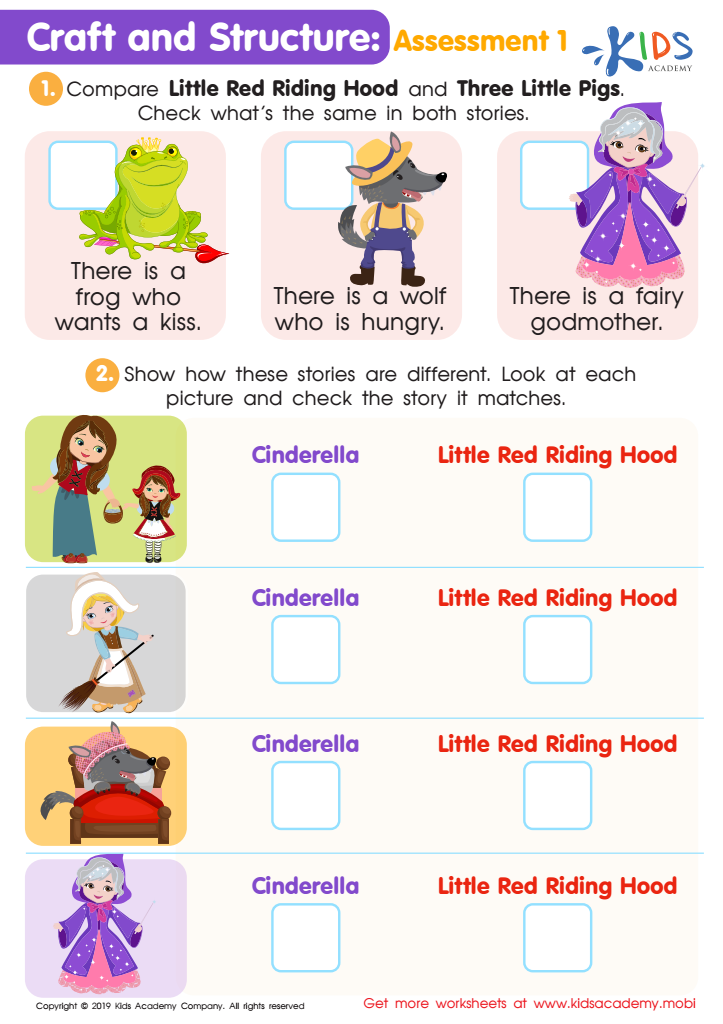

Craft and Structure: Assessment 1 Worksheet
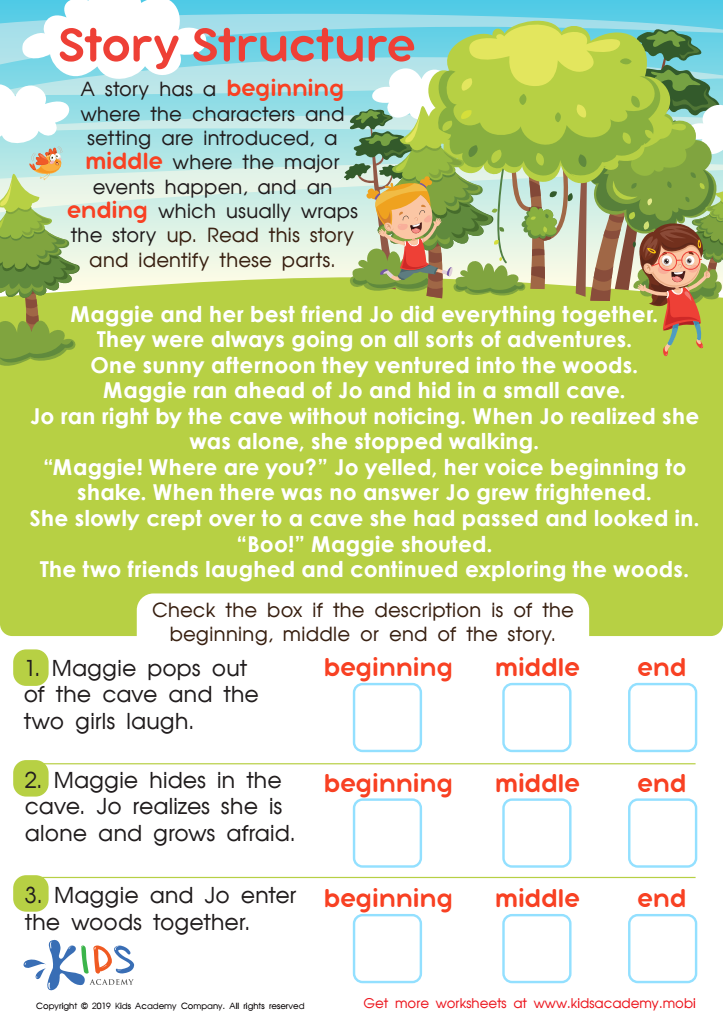

Story Structure Worksheet
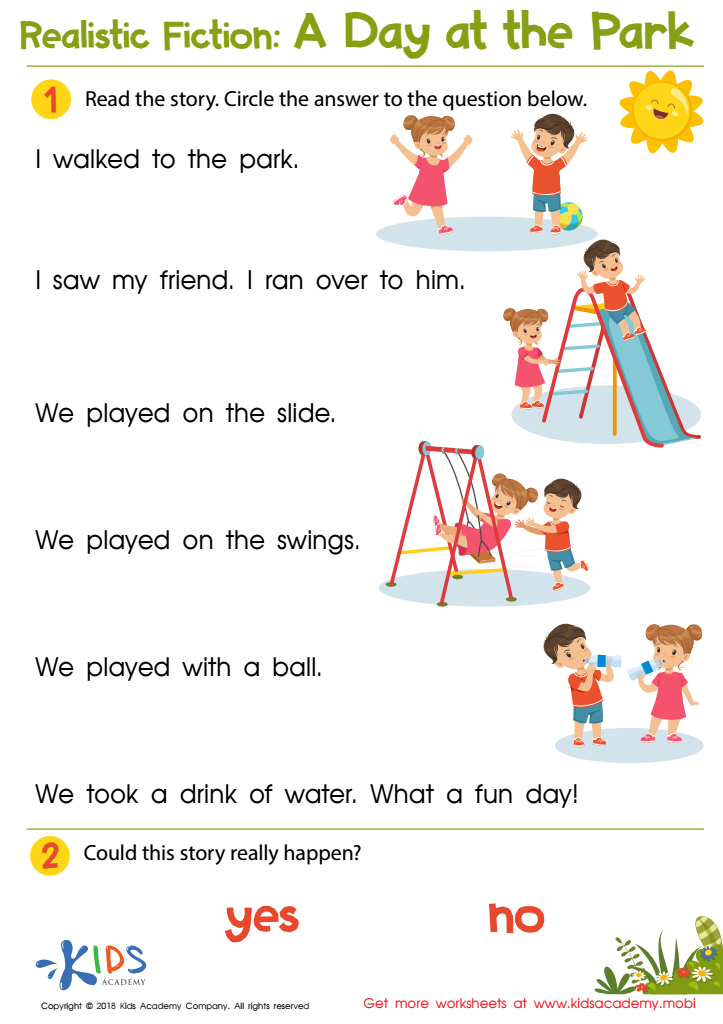

A Day at the Park Worksheet
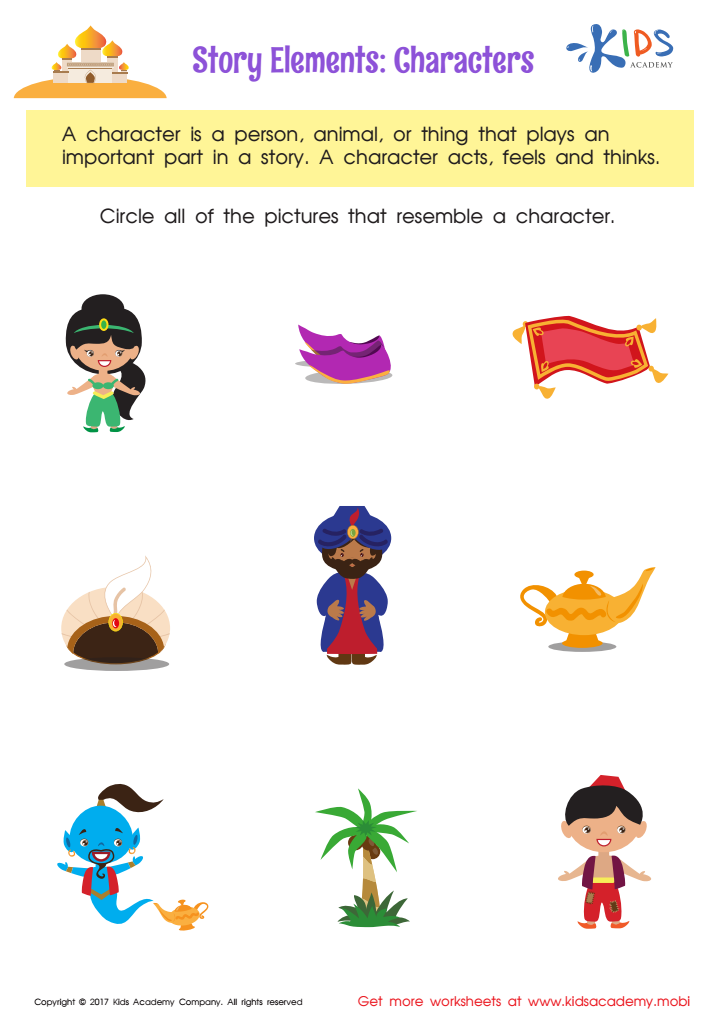

Story Elements Printable
Identifying story elements such as characters, setting, plot, conflict, and resolution is crucial for young children's development for several reasons. For ages 4-9, understanding these components fosters comprehension skills, promoting a love for reading and storytelling. It enables children to make connections between different parts of a story, enhancing their cognitive abilities and memory. Recognizing characters and settings strengthens their ability to visualize and imagine, sparking creativity.
Moreover, understanding plot, conflict, and resolution nurtures critical thinking. It allows children to predict outcomes, analyze problems, and develop solutions. This skill is transferable to real-life scenarios, aiding in emotional development as they learn to empathize with characters’ journeys and dilemmas.
For parents and teachers, focusing on story elements at an early age lays a foundation for advanced literacy skills. It prepares children for more complex reading tasks, ensuring they are not just reading, but understanding and interacting with the material. It promotes discussions that build vocabulary and grammar proficiency. In a classroom, this practice can foster collaborative learning as children share interpretations and insights.
In summary, identifying story elements is a fundamental literacy skill that propels early childhood development in reading comprehension, critical thinking, creativity, and emotional intelligence, setting the stage for lifelong educational success.

 Assign to My Students
Assign to My Students



